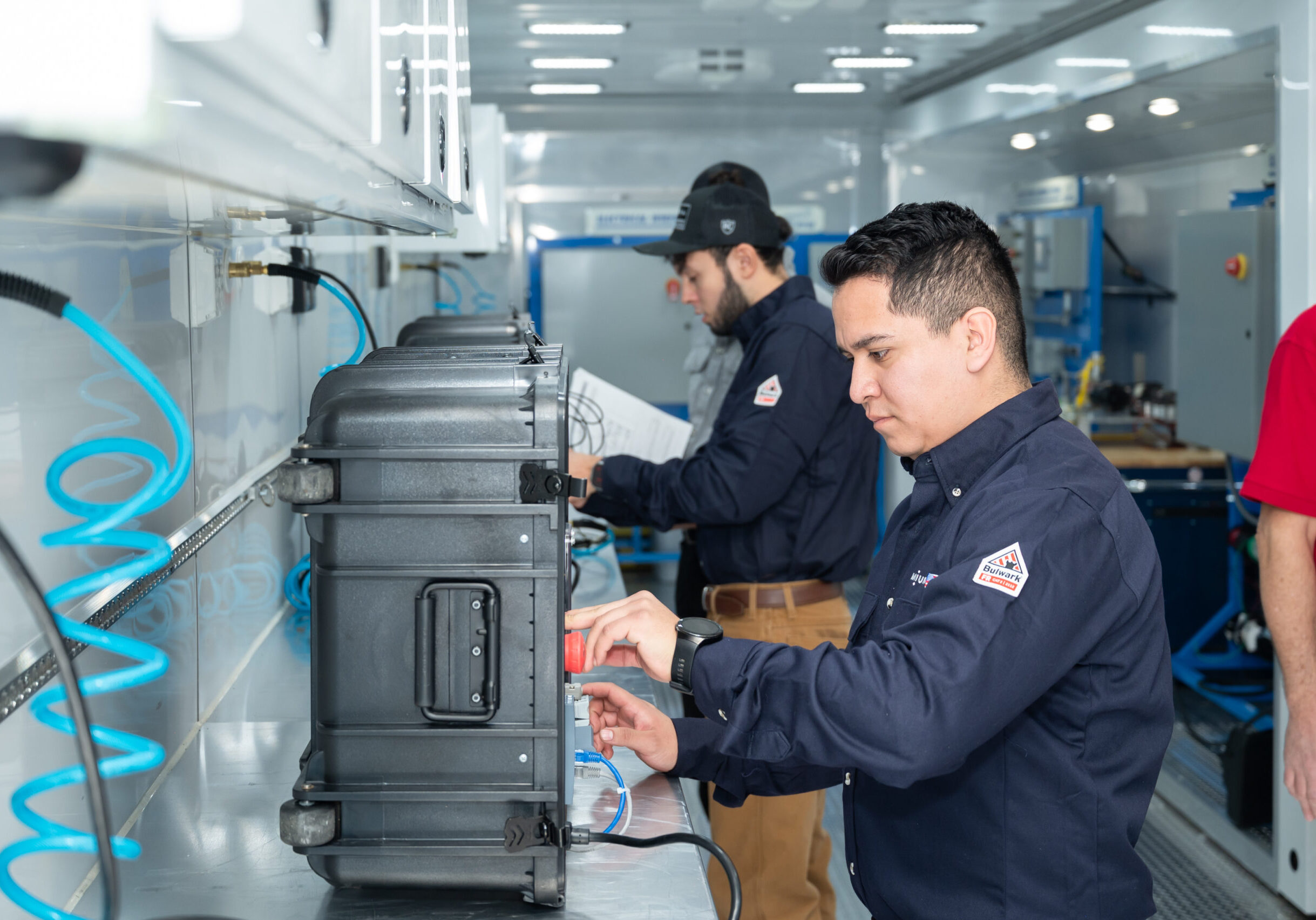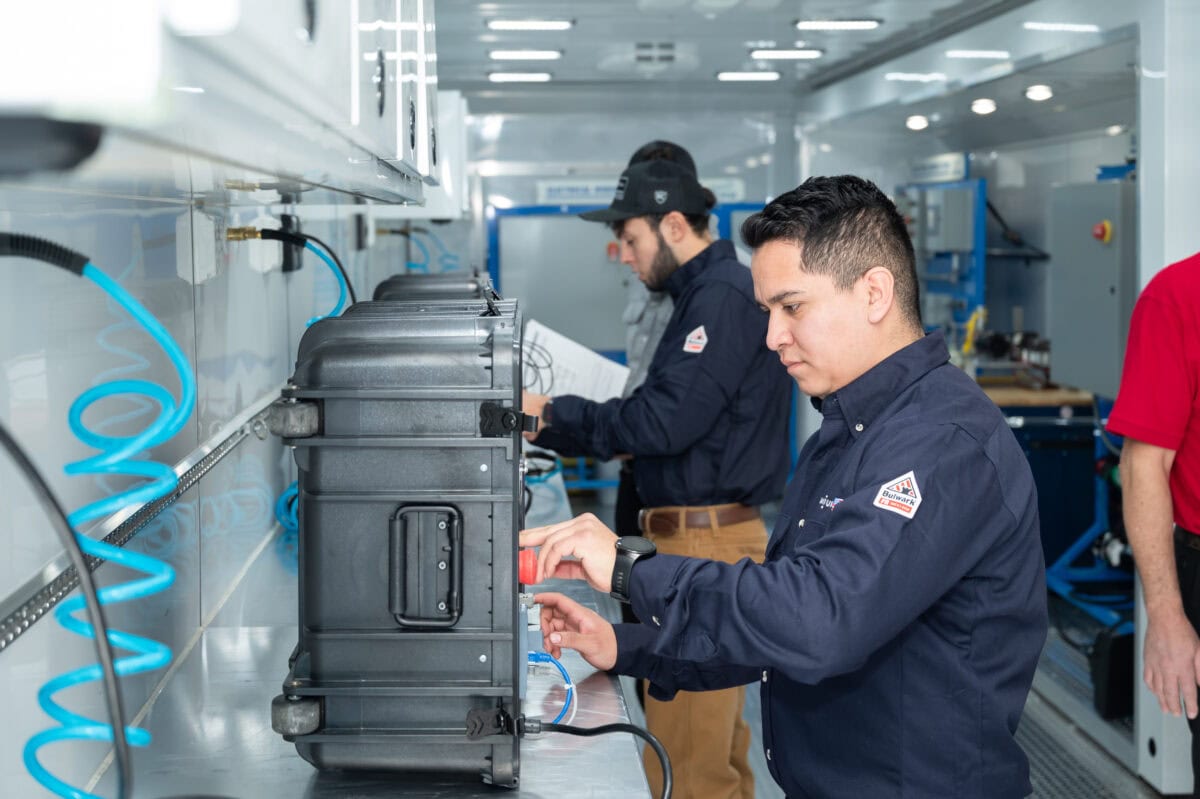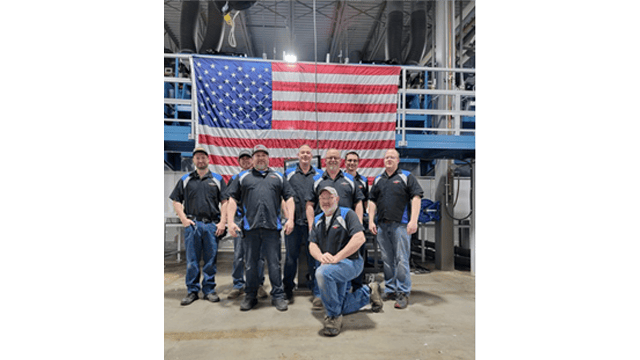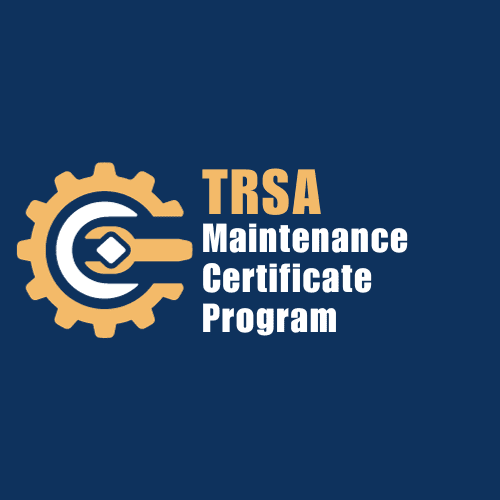It’s been 30 years since the U.S. Navy shuttered its Boiler Trade Program. A key source of technicians for boiler manufacturers is disappearing, as the last of the Navy’s final generation of program graduates retires. For Miura America Corp. (MAC), Rockmart, GA, looking elsewhere to recruit has become a higher priority. This has culminated in the development of President Paul O’Donnell’s idea for a Miura Boiler Trade (MBT) program with Georgia Northwestern Technical College (GNTC), based in Rome.
GNTC placed a 56-foot mobile lab trailer in MAC’s headquarters parking lot equipped with hardware and models for teaching boiler fundamentals. Recruits are hired and receive orientation and initial training at headquarters for three months, including production work, classroom training and field work. In months 4 to 6, they shift to local branch training, with classes and field work. The seventh month brings initial field placement, consisting entirely of field work, with MAC assigning the work location based on company needs. This continues until the 30th month, when regular full-time employment begins.
While specific to boiler technicians, MBT is a template for linen, uniform and facility services companies for initiating and developing a relationship with a college/tech school staff to produce hires for difficult-to-fill maintenance and engineering positions. Here are key to-do’s to build and perpetuate such a program for your organization.
Make contacts at the school and develop practices for working with them.
As training project manager, MAC’s Jason Villarreal’s main point of contact has been Angela Berch, GNTC economic development VP. She fields his questions about instructor and mobile lab availability and other matters impacting GNTC-specific training resources. He copies emails to Patty Hart, GNTC economic development director. Villareal maintains communication, when necessary, with Wayne Pettigrew, the non-credit GNTC instructor who teaches Miura trainees about basic electrical circuits, control logic, and programmable controller topics. Villareal keeps Pettigrew up to date on last-minute changes to the schedule or issues involving Miura trainee-employees that could impact lesson plans.
Be patient. It will take months from conception to get desired results.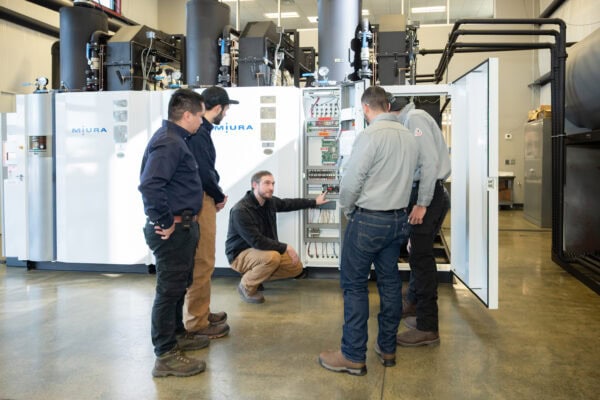
O’Donnell and GNTC began discussions in winter 2023-24; the first MBT “round” began in October 2024 and wrapped up in January 2025. The round began with six students; one was dismissed midway through the round due to behavioral problems, e.g., bad attitude, rudeness, wandering away from his assigned stations without informing anyone, etc. Management wrestled with this decision. No one wanted to dismiss the student too hastily, but it was unclear how long to wait to see if the behavioral issues improved. Ultimately, they concluded that shying away from dismissing students who did not share MBT ideals would detract from respect for the program. The dismissal demonstrated to the other students MAC’s seriousness and commitment to maintaining a quality program. The remaining five students completed MBT and graduated in January 2025. Overall, the remaining members of this cohort were enthusiastic, competent, and determined.
Miura launched the program’s second round in April 2025 with seven students: six TN Visa candidates (see below) and a local from Rome, GA. The envisioned limit for future rounds is eight, the maximum number of people who can comfortably fit into the GNTC mobile learning lab, not including the instructor. Commensurate with future expansion to the physical training space, O’Donnell envisions expanding the number of trainees per round.
Clarify what, how and when the school will teach—with contingencies.
Training provided by GNTC focuses on common components and concepts used in automated control systems. Broad topics include basic electrical circuits, electrical measurements, control logic, introduction to electrical control wiring, wiring electrical panels, electrical motor control, and introduction to programmable controllers. GNTC classes are held every Thursday from 8 a.m to 5 p.m. for the duration of the program.
Pettigrew is the instructor; GNTC is working to overcome a shortage of available non-credit-hour instructors. MAC has had no disruptions involving instructor reliability. Villarreal has inquired about substitute instructors should Pettigrew become sick or injured. Because of the shortage, no substitutes are currently available. If he is absent on a scheduled teaching day, Miura would work with GNTC to reschedule the class. During the first round, the number of students was never so low that a class was canceled or rescheduled.
The MAC-GNTC agreement calls for use of the trailer as a classroom for GNTC-provided instruction. Beginning in August 2025, GNTC would move it from MAC property to the GNTC Rockmart campus just up the road. GNTC’s own expanding curriculum now requires their students to be in the Mobile Lab on certain days. Thursdays, however, are reserved for MBT.
Recognize qualification levels in assigning roles to trainees.
MBT places candidates in field engineer and field technician roles and attracts TN Visa candidates. Prior to MBT, engineers were required to hold a degree in an engineering field (e.g., mechanical, electrical). Technicians are not degreed as such but possess requisite experience for performing inspections and preventive maintenance on boilers. These role designations function virtually the same with respect to MBT. As stipulated by United States-Mexico-Canada Agreement eligibility requirements, TN Visa applicants get a 3-year stay and are usually required to possess a baccalaureate degree. All MBT TN Visa candidates have baccalaureate degrees in mechanical, electrical, mechatronic or chemical engineering. Therefore, all these candidates would, upon completing MBT, be designated as field engineers. For example, in the last round, an American trainee without a degree in engineering had experience in CAD, photography, and building personal computers. He is designated as a field technician.
Consider locals who don’t attend the school and immigrants as potentially strong candidates.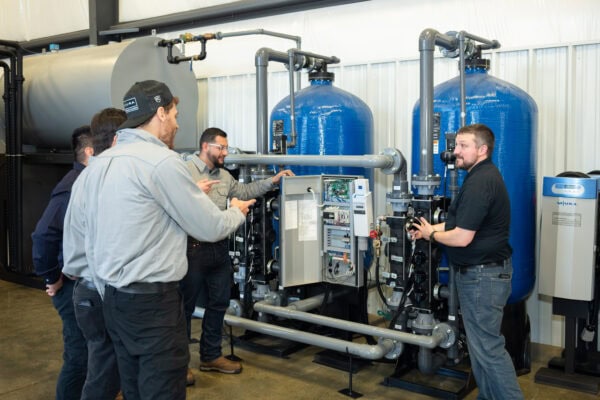
Only one GNTC student has expressed interest in joining MBT. The student asked if he would be able to remain in the GNTC program while participating in MBT. MAC determined that such concurrent enrollment would not be possible given MBT’s demands. MAC is happy to consider GNTC graduates who apply to MBT. Such graduates are viewed as viable MBT candidates, even if their education is made up of a variety of trade- or craft-related coursework. Students who have some knowledge of electrical work and heat transfer principles would likely find it easier to adapt to MBT. At some point, it may behoove MAC to maintain ongoing relationships with GNTC instructors who teach in these varied fields.
Use staff for their usual functions but consider an agency/consultant to handle immigration/visa issues.
MAC partners solely with Swineworks, a recruiting agency with expertise in the TN Visa application process. MAC’s Lorraine Peacock (senior recruiter) and Winston Ng (maintenance and field engineering manager) conduct interviews with prospective candidates. They do no testing; Swineworks manages English and industrial skills assessments. During the interviews, Peacock provides an overview of the program timeline, including the requirement for candidates to relocate twice within the 30-month period. Ng focuses on technical questions. Candidates are selected based on their responses to these inquiries, including their ability to grasp the questions posed, and their clarity in communicating answers.
Plan thoroughly and initial success may ensue.
In the first MBT round, the five remaining trainees performed well, passed their final exams, and graduated. The TN Visa candidates exhibited the strongest performance given their educational backgrounds in engineering. The American candidate had to work a little harder to keep up with the other trainees, but he benefited a great deal simply from being a part of the group, especially during hands-on training while participating in collaborative troubleshooting activities. This trainee passed his final exam with an 80% score on the boiler section and 98% on the water treatment section.
Be confident that investing to educate techs can pay off.
MAC is optimistic about MBT’s long-run impact on the company. The company’s knowledgeable and competent boiler technicians not only perform routine inspections, startups, and maintenance. They educate existing and prospective customers about the Miura brand and the benefits of MAC’s boilers and water treatment equipment. MBT aims to help achieve these goals by maintaining a recurring trade-oriented curriculum that combines classroom instruction with hands-on and in-field training activities.


